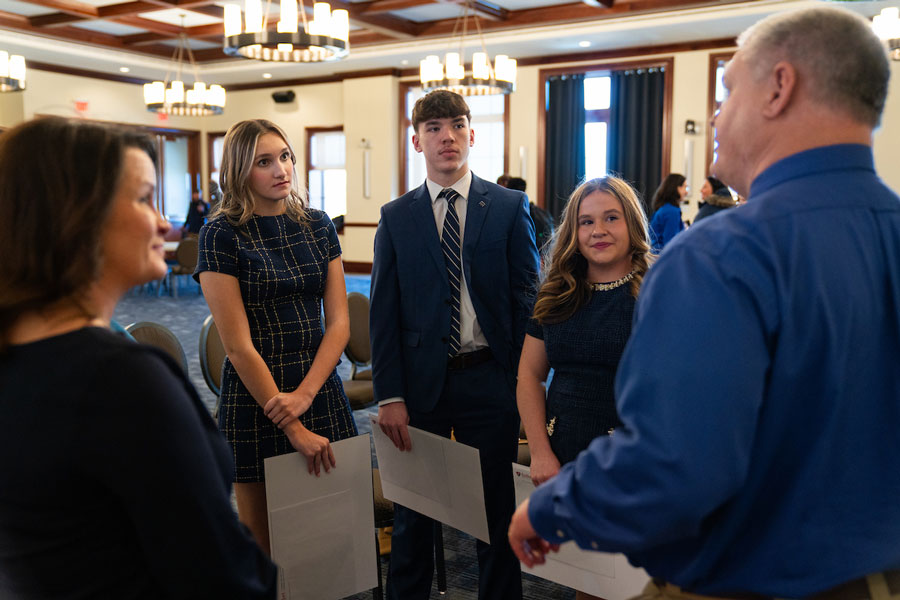Radford University
Radford News
Latest News
-
Highlander Highlights: Week of Feb. 23, 2026
February 27, 2026
Highlander Highlights shares with readers some of the extraordinary research and accomplishments happening on and off campus through the tireless work and curiosity of our students, staff, alumni and faculty.
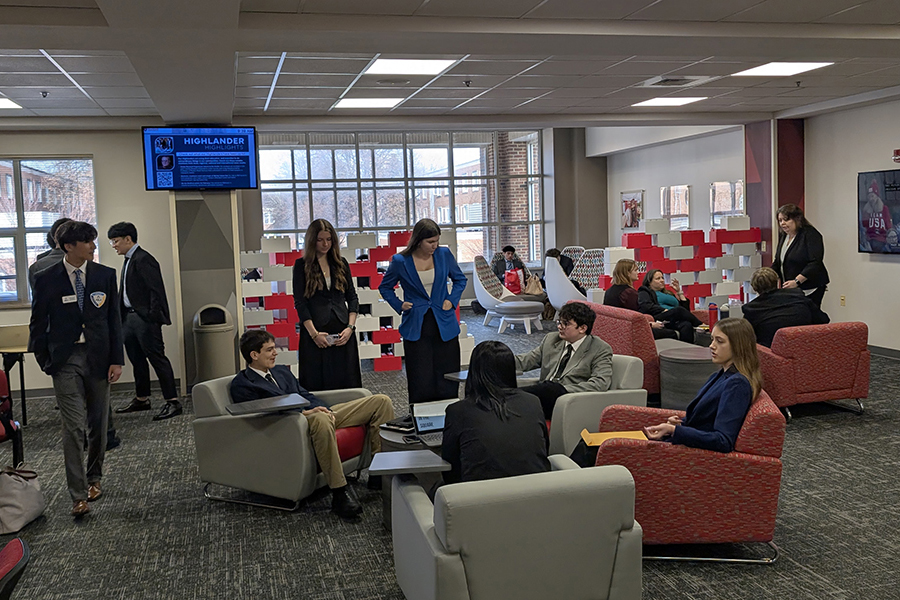
-
Radford College of Nursing negotiates agreement with Virginia Tech
February 26, 2026
High-achieving students at Virginia Tech now have a clearer and faster path to becoming Highlander nurses through a newly signed agreement.
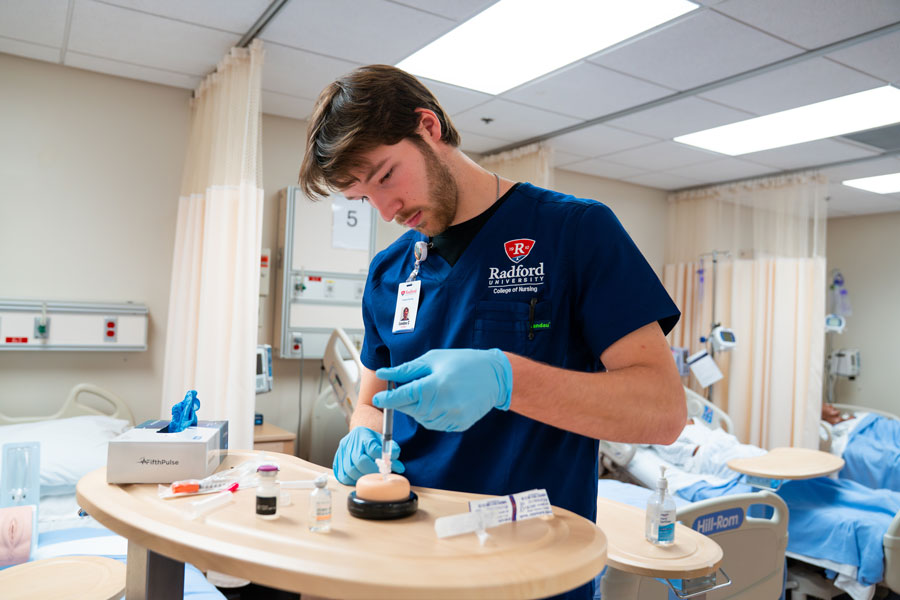
-
The team will compete in the national championships March 6-8 in Cape Coral, Florida.

-
Radford students preparing for spring break trip to explore, research national parks in western U.S.
February 25, 2026
A group of Radford students are getting a unique opportunity to explore and conduct research at national parks.
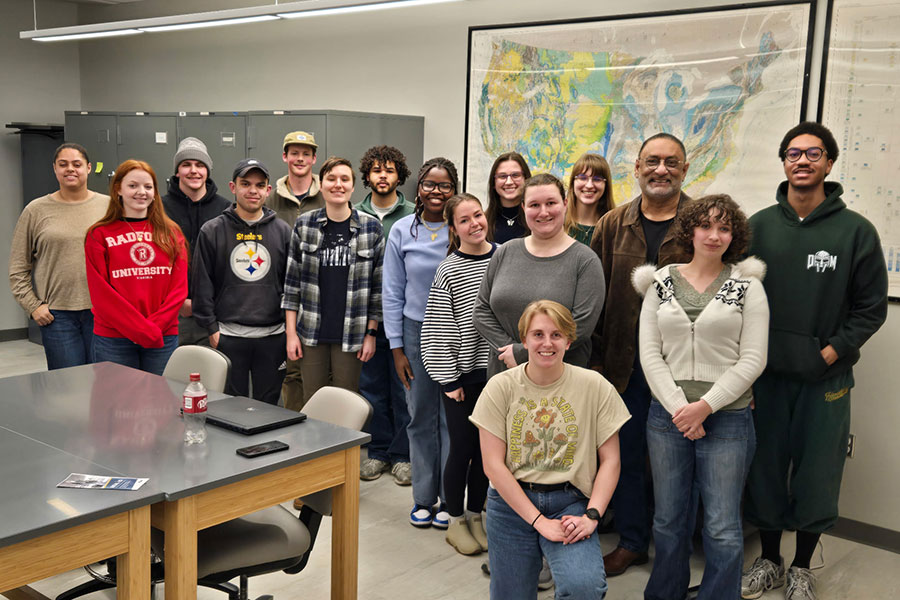
-
Radford University helps address Virginia’s teacher shortage through targeted licensure support
February 20, 2026
Radford University launched a targeted scholarship initiative to support provisionally licensed teachers in completing their licensure requirements.

-
Advocacy Day connects students with Virginia lawmakers
February 20, 2026
Radford University students spent Feb. 3-4 at the Capitol in Richmond, Virginia, for the university’s annual Advocacy Day.
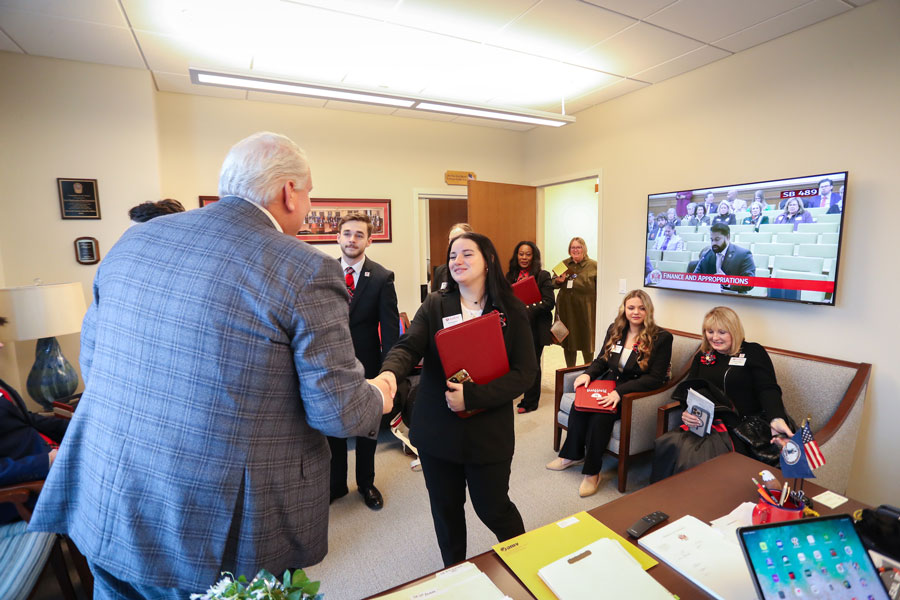
-
Highlanders in the News: Week of Feb. 16, 2026
February 20, 2026
Matthew Bagley ’15 – aka musician Alexander Mack – enjoys a brush with Grammy glory; veteran seafarer Erica Custis ’99 gets props from Marine Log magazine; and journalist Marty Smith ’98 reflects on his past with the Post.

-
Jobs for Virginia Graduates event gives college careers some ignition
February 19, 2026
Held Feb. 12 at Kyle Hall, the statewide JVG Ignite competition – designed to demonstrate innovation, knowledge and preparation – saw five students receive $1,000 each in Radford University scholarship funds.
